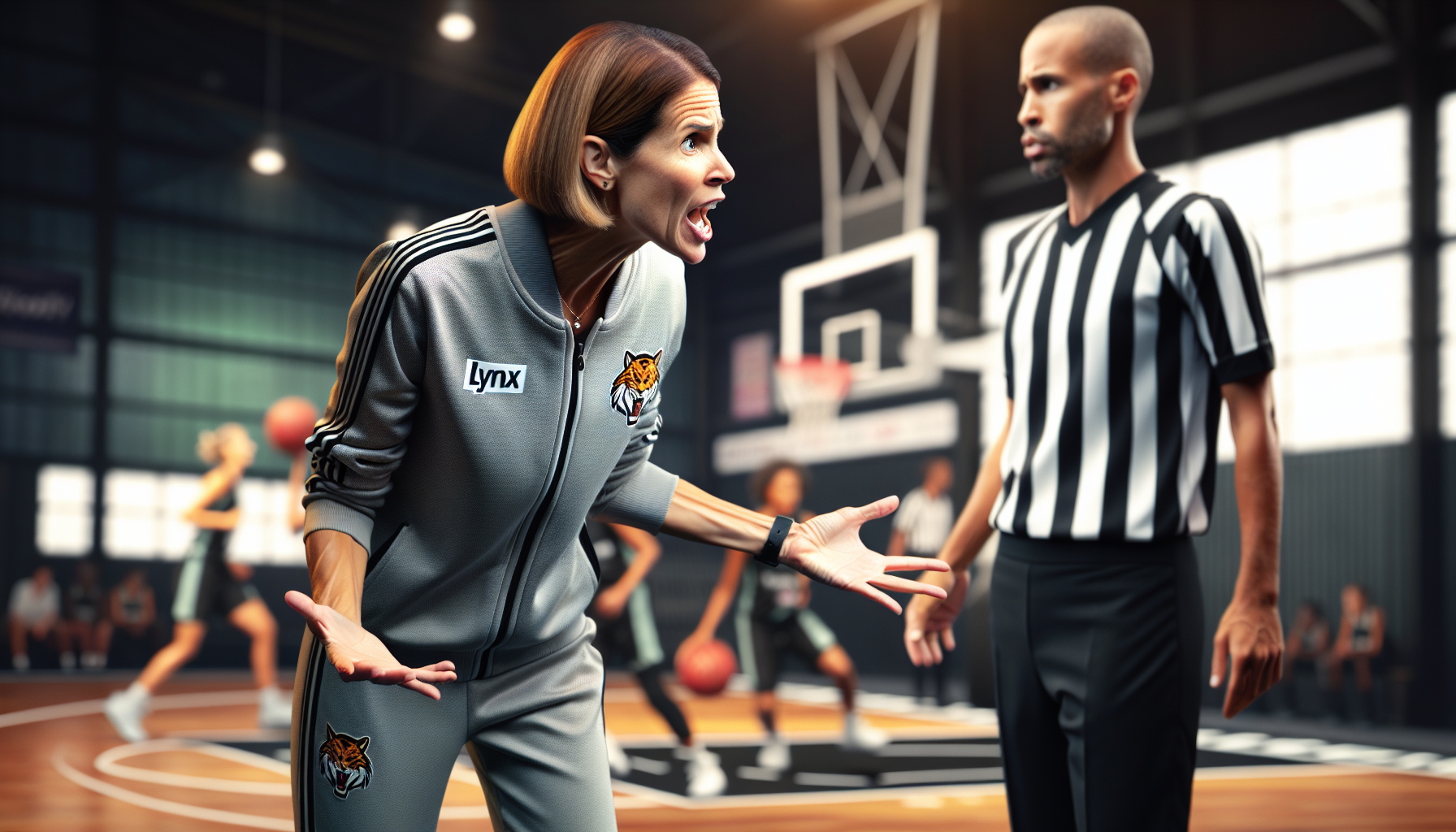The recent wave of criticism surrounding WNBA officiating has reached a new peak as Cheryl Reeve, head coach of the Minnesota Lynx, expressed her vehement dissatisfaction following a controversial game that many argue cost the Lynx their championship aspirations. The officiating in WNBA games has often been a debatable topic, but this instance has brought it into sharper focus than ever before.
Mounting Frustration in the WNBA
Cheryl Reeve’s outspoken criticism of the officiating is not an isolated incident within the world of the Women’s National Basketball Association. For years, players and coaches alike have voiced concerns over the consistency and fairness of calls made on the court. This latest event, however, underscores a broader tension that has been simmering under the surface for quite some time. With the stakes being so high, every decision made by officials can profoundly impact the outcome of the game.
Reeve’s post-game comments highlight the pressure and determination all teams feel during the finals. The seasoned strategist insisted that the questionable officiating played a pivotal role in the outcome, stealing what she believes was a rightful victory for her team.
The Controversial Game That Stirred the Waters
The game in question saw the Lynx face off against a formidable opponent in a high-stakes playoff environment. Moments leading up to the final buzzer were marked by contentious calls, including a pivotal foul alleged against one of the Lynx’s key players. This decision swung the momentum, allowing their opponents to capitalize and, ultimately, seize victory. For Lynx fans and many neutrals, this wasn’t just a match; it was a blow to the integrity of officiating standards in professional sports.
What Does This Mean for the Players?
For many players, the feeling of a game being taken from their grasp due to factors beyond their control can be profoundly demoralizing. It raises questions of fairness and sportsmanship that extend beyond a single game or season. When players train tirelessly to achieve excellence, it’s crucial that every aspect of the game — including officiating — meets those same standards of professionalism and integrity.
Exploring Broader Implications
Fans and media alike have been quick to rally behind Reeve’s statements, pushing for a thorough analysis and potential overhaul of the current officiating system in the WNBA. The goal is not only to ensure fair play but also to uphold the integrity of the sport. By addressing these concerns, the league can work proactively to prevent such incidents in the future.
Ultimately, improving officiating isn’t just about refining the process itself, but also about restoring player and fan confidence in the fairness of the sport. Many advocates are calling for transparency in officiating decisions, consistent training for referees, and perhaps, the implementation of technology to assist with contentious calls.
Potential Solutions for the Future
To address the ongoing concerns highlighted by Reeve and others, several potential solutions have been proposed by stakeholders in the sport:
- Enhanced Training Programs for Officials: Increasing the rigor of training and assessments to ensure officials are well-prepared for high-pressure situations.
- Implementing Technology: Reviewing the possibility of using video replay and other technologies to aid in decision-making processes.
- Transparency and Accountability: Establishing a transparent system where coaching staff and players can discuss and contest critical calls.
- Regular Performance Reviews: Having systematic performance evaluations, potentially involving feedback from coaches and players, to continuously improve officiating standards.
Each of these steps could play a vital role in transforming the way games are officiated, all while maintaining the fluid and dynamic nature of basketball. For more ideas on improving officiating standards, the NBA’s ongoing efforts can serve as a helpful case study (source).
Supporting the Sport We Love
As fans of the sport, it’s essential to understand that constructive criticism such as Reeve’s, when channeled productively, can serve as a catalyst for positive change. By highlighting these issues, the Lynx’s coach has pushed the conversation into the public domain, encouraging stakeholders to address these critical concerns head-on.
The aim, ultimately, is to ensure that the WNBA continues to thrive and grow, earning the respect and admiration it richly deserves. By focusing on the quality and consistency of officiating, the league can not only improve the current state of affairs but also foster a future where fairness and excellence go hand in hand.
Conclusion: Turning Controversy into Opportunity
The focus now shifts toward how the WNBA will respond to these mounting concerns. While the frustration felt by Cheryl Reeve and the Minnesota Lynx is understandable, it offers an opportunity for measured improvement and innovation within the league. By learning from these challenges and implementing effective solutions, the WNBA can emerge stronger and even more respected on the global stage.
Every athlete, coach, and fan loves this sport for its unpredictability and excitement. By striving for the highest standards in every facet, including officiating, the league can ensure that these beloved qualities shine through without any shadow of controversy clouding the view.
Interested in learning more about the dynamics of basketball officiating? You might also find this insightful article on sports ethics relevant to the ongoing conversation (source).

